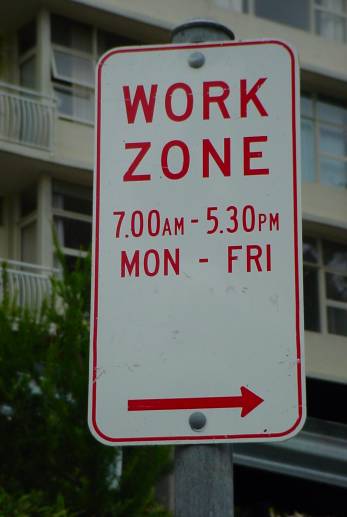
Work, business & professional services
Don't just do something, sit there
One of the consequences of technology is the speeding up of everyday life. This creates a sound bite, tick box, instant opinion culture in which people are expected to amass knowledge almost instantaneously. Children suffer the most, finding it almost impossible to wait for anything. This is a problem because when it comes to innovation and ideas, new solutions need periods of reflection and contemplation. Indeed, some types of thinking cannot be done at high speed and ideally require solitude and silence (two raw materials that are increasingly hard to find). In our experience the best way to get a new idea is to think about something else. Go for a walk, without your phone, and eventually something will pop out.
Source: The Guardian (UK).
The best innovators
Engineers make the best innovators. This is because engineers understand that most things are part of a system (so everything influences everything else). Systems therefore need to be robust and design really matters.
Source: The Economist (UK).
Alumni power
According to a Bank Boston study, MIT alumni have created 4,000 companies employing 1.1 million people with revenues of US $ 232 billion. And that was in 1997. Such figures led Cambridge University to form a joint venture with MIT in 2002 to exploit scientific discoveries, especially in the area of biotech. However, getting entrepreneurs to gravitate to new places takes more than just money. You need places where new ideas are valued and where failure is accepted. In Europe failure is stigmatised. In the US it isn’t. Indeed, there is a VC company in the US that won’t lend you any money unless you failed at least twice.
Source: New York Times (US).
Creative cities
According to Professor Richard Florida (The Rise of the Creative Class), economic progress is driven by ideas, and ideas tend to cluster in cities that are open and tolerant of diversity. If cities want to become economic powerhouses they must therefore attract gays, bohemians and ethnic minorities. In other words, no rock bands no patents.
Source: AFR Boss (AUS).
More measurement
According to the Harvard Business Review, MRI and PET scanning not only have implications for customer research (how people respond to everything from product design and pricing to advertisements) but also management. Traditionally, subjects such as leadership, teams, motivation and personality have relied on ‘soft’ sciences like psychology and psychoanalysis.
Source: Harvard Business Review (US).
The social costs of work
Work-life balance is now a mainstream question inside most organisations. The issues range from finding ways to reduce stress to encouraging soft skills (emotional intelligence). Books like the Commercialisation of Everyday Life, Consumption and The Work/Life Collision have examined the impact of ‘business efficiency’ on home life but there is still work to be done looking at how business values and culture impacts on society at a wider level.
Source: AFR Boss (AUS).
Nice people to do business with
A law firm in the US has adopted a ‘no asshole’ rule to prevent the company from hiring (or keeping) bullies, bastards and narcissists. A similar ‘no jerks’ rule is applied at another US company, which defines the rule as the ability to get along with others.
Source: Harvard Business Review (US).
Companies of the future
A list of the world’s 500 largest corporations in the year 2054 is headed by Amazonbay. Other top companies include Toyota, Sinogazzon, Sinobiocorp, Indosoft, Nestlé, IBM and Newscorp.
Source: Fortune/gbn.com (US).
The next big idea (small ideas)
According to the Economist “blockbuster new products are harder and harder to come by, and big companies can do much better if they focus on making lots of small things better.” (The opposite of what innovation guru Gary Hamel says). Radical innovation tends to disrupt the status quo which causes resistance in both companies (internally) and markets. The fragmentation of mass-markets into numerous niche markets means that launching disruptive innovations is also becoming harder. Solutions to such dilemmas include business process innovation (as practised by Toyota, Wal-Mart and Dell), and switching from product innovation to ‘demand innovation’(discovering new forms of demand rather than enhancing existing products and services).
Source: The Economist (UK).
Rich Dad poor Dad
The ratio of average CEO pay to average worker pay is now 400:1.
Source: The Atlantic Monthly (US).
Aggressive competition
80% of companies are dominated by passive aggressive behaviour.
Source: The Australian (AUS).
This is Ms Fisher, she's new ...
A law compelling German companies to hire trainees is being applied to German brothels.
Source: Der Spiegel (GER).
